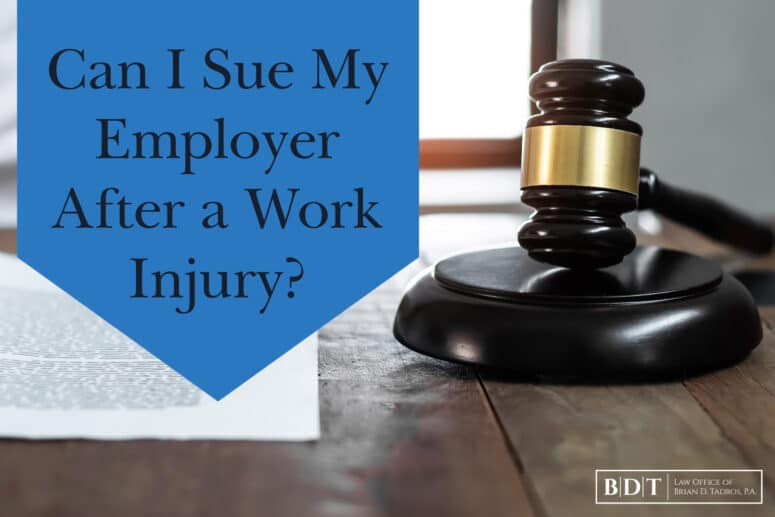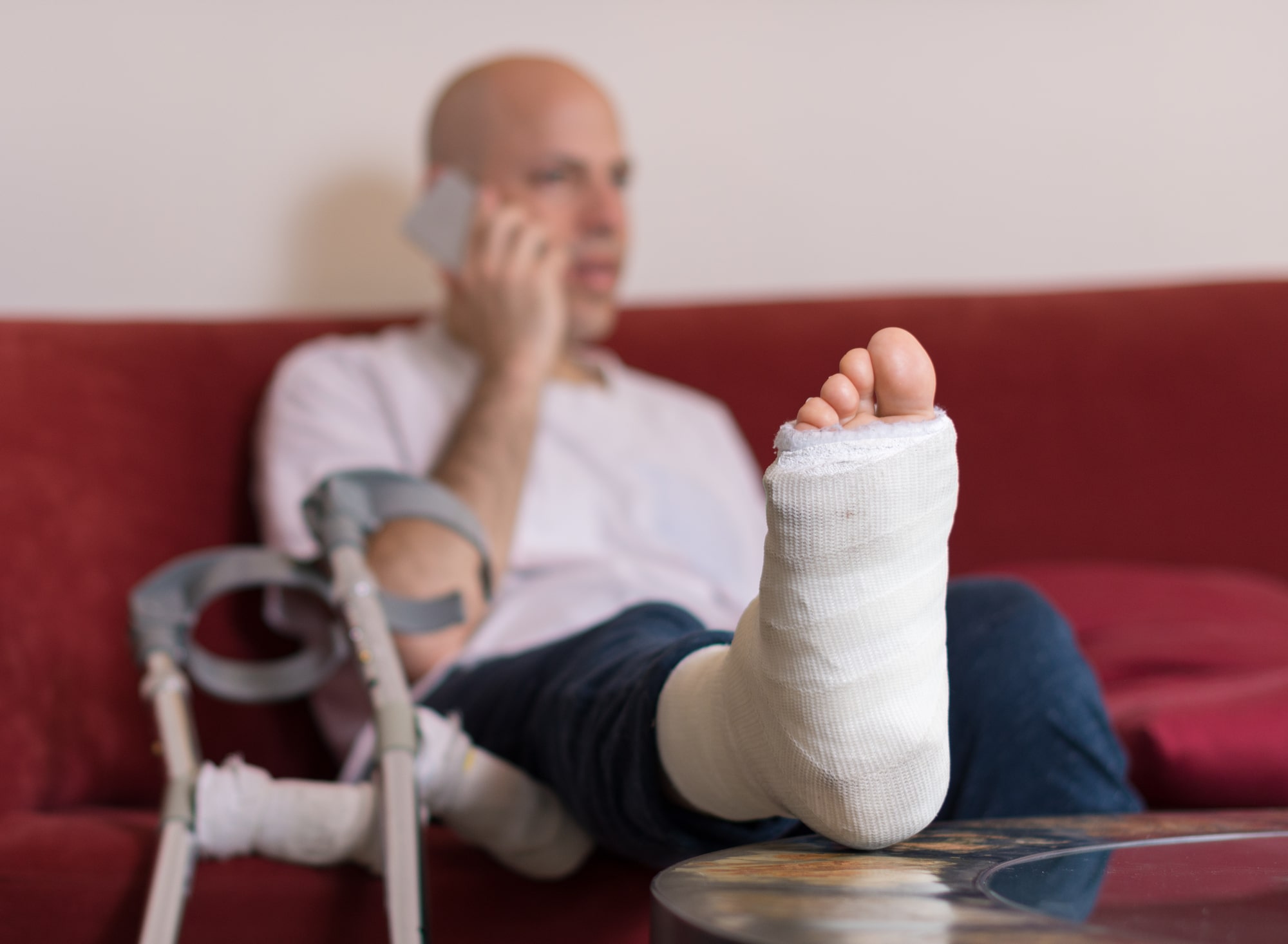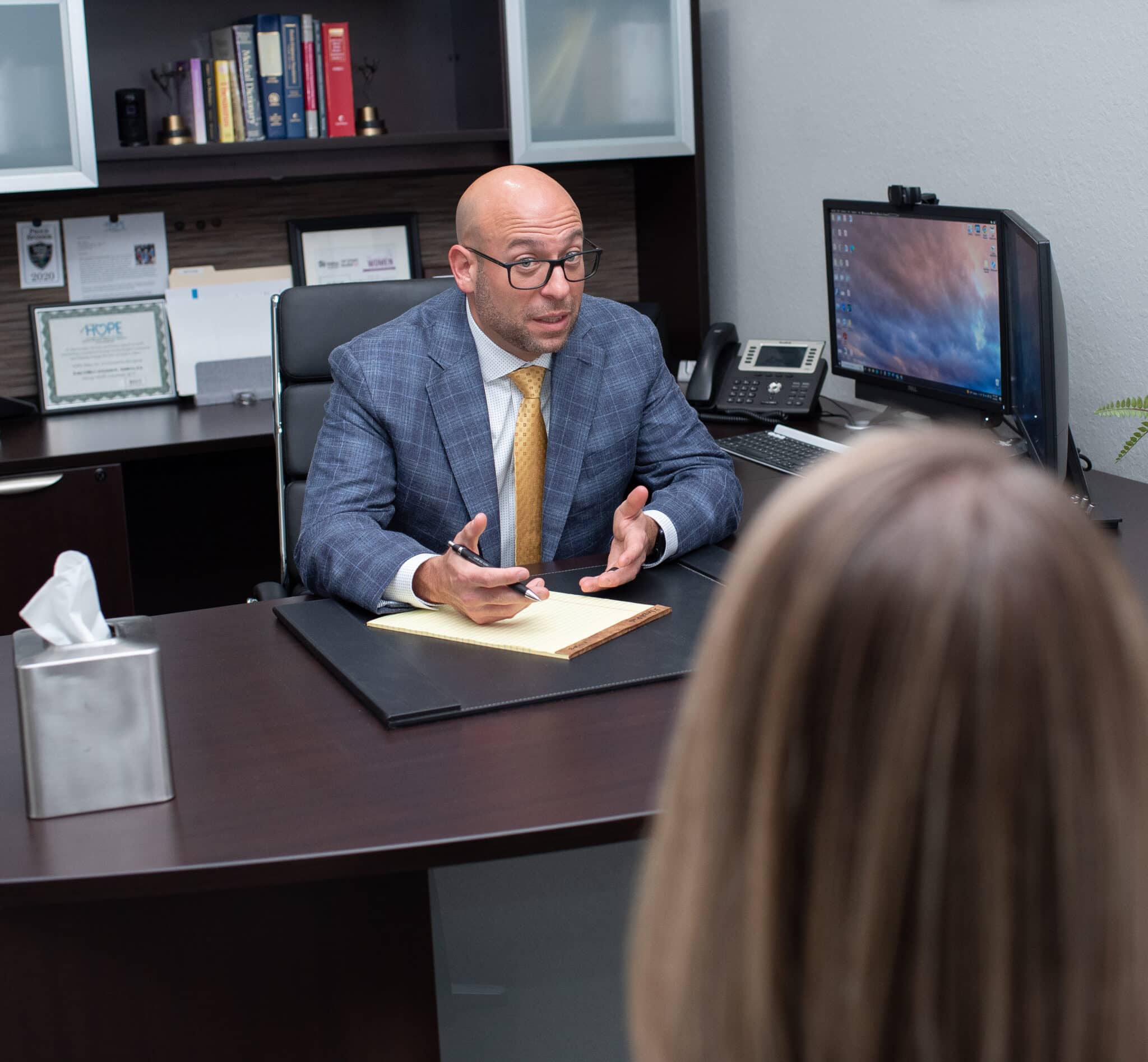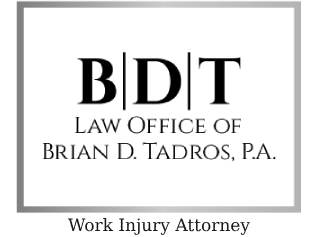
“I was injured at work…
…can I sue my employer?”
If you have a full-time job, it’s likely that you spend most of your waking hours at work every week. Therefore, it’s natural that you want to feel safe there—whether you’re in an office or a warehouse.
Yet despite all of the training and safety equipment that’s available (and even though you tried to be careful), you got injured. Isn’t there anything you can do to make sure it doesn’t happen again?
Yes, your employer has a responsibility to keep its workers safe, but there’s a lot you need to understand first if you’re asking, “Can I sue my employer?”
Injured at Work In Florida?
Can I Sue My Employer After an Injury?
The short answer is: no.
The workers’ comp program was set up as an alternative to injury lawsuits between employer and employee.
Rather than being forced to pursue compensation through the legal system, injured employees can now receive lost wage reimbursement, medical care, and other benefits through the workers’ compensation program.

As a no-fault system, workers’ comp is designed to work regardless of who was at-fault for the accident—whether that’s you or your employer.
Furthermore, workers’ compensation insurance is supposed to be self-executing. This means that you should not require the services of an attorney just to collect your benefits. (Naturally, there are situations where a lawyer becomes necessary, but the system can work without one.)
However, there are occasions when you can (and should) sue your employer following a work injury.
When Can I Sue My Employer?
Despite workers’ comp existing as a “no-fault” system, both you and your employer are bound by certain limits.
Workers’ compensation fraud—whether it’s perpetrated by an employee or employer—is never tolerated. If any of the following exceptions are present in your case, you should seriously consider filing a lawsuit.

1. Intentional Injury
If you can prove that your employer deliberately caused your accident, you have legal recourse to sue them for physical damages as well as pain and suffering (which is normally not compensable through workers’ comp).
The problem is that it is very difficult to provide solid proof that will hold up in a court of law.
2. Virtual Certainty
You can also sue your employer if there was a “virtual certainty” that someone would be injured in the normal completion of their duties.
For example, if your workplace is operating with missing or malfunctioning safety equipment, it was probably only a matter of time until someone got injured (and it just so happened to be you).
3. Lack of Workers’ Compensation Insurance
Many businesses are required by law to carry workers’ compensation insurance.
The “no-fault” rule only applies under the workers’ comp program. If your employer doesn’t have workers comp insurance, they have essentially waived their right not to be sued.
4. Suing a Third Party
Even if you aren’t able to sue your employer, you may be able to sue a third party that contributed to your accident.
If your machinery or safety gear malfunctioned, you are permitted to file a lawsuit against the equipment manufacturer.

What Are My Legal Rights?
Even if a lawsuit is not an option, you do have legal recourse open to you.
Under workers’ compensation, you are entitled to certain benefits. Yet all too often, the insurance companies are looking out for their own financial interests rather than your recovery.
You always have the right to hire a workers’ compensation attorney, even if you may not need one.
There is no way of knowing how your workers’ comp claim will proceed. Even if your claim is not denied, you might be offered a laughably small sum at settlement or you might not receive a response at all.
An attorney can provide the guidance, education, and representation you need so you can focus on recovery and reach a successful outcome to your case.
Protect Your Legal Rights!
Workers’ compensation was designed as an alternative to long courtroom battles between employer and employee.
Rather than having to file a lawsuit to receive medical care and wages reimbursement, injured employees can simply receive these benefits through their employer’s workers’ compensation insurance.
In short, injured employees cannot sue their employers except in cases of intentional injury or extreme negligence.
While designed to work without legal interference, workers’ compensation cases can get derailed in multiple ways–many of which require the assistance of an attorney.
If you’re suffering from a workplace injury in the state of Florida, The Law Office of Brian D. Tadros, P.A. can help your case get back on track.
As a family owned and operated law firm, our office is available to you in whatever way you may need it. Furthermore, we don’t get paid unless we win your case.
Call today to set up a free consultation.

